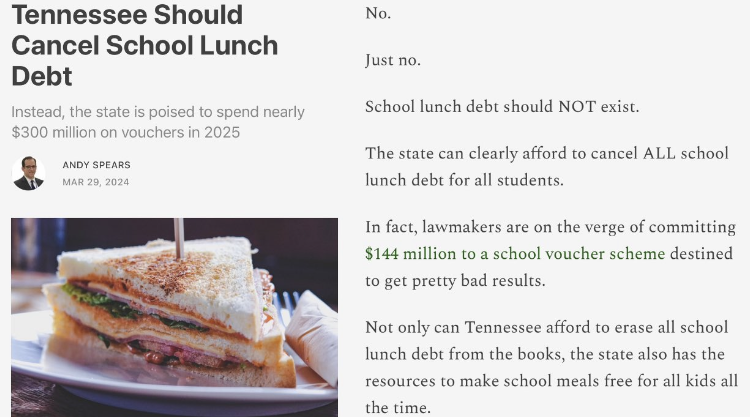Pro-voucher lawmaker wants to “blow-up” state’s “terrible” school system
Rep. Scott Cepicky made it clear that the motive behind Gov. Bill Lee’s signature public policy initiative, school vouchers, is tearing down the state’s public school system.
Nashville’s NewsChannel5 has more on Cepicky’s revelation:
The lead sponsor pushing school vouchers in the Tennessee state House says his goal with Tennessee’s public education system is to “throw the whole freaking system in the trash,” according to a recording obtained by NewsChannel 5.
Rep. Scott Cepicky, R-Culleoka, whose children attend a private religious school in Columbia, said he believes that “blow[ing] it all back up” is the only way to “fix” the state’s public schools, which he describes as “terrible.”
MORE TENNESSEE NEWS
School Board Candidate Opposes Arming Teachers








